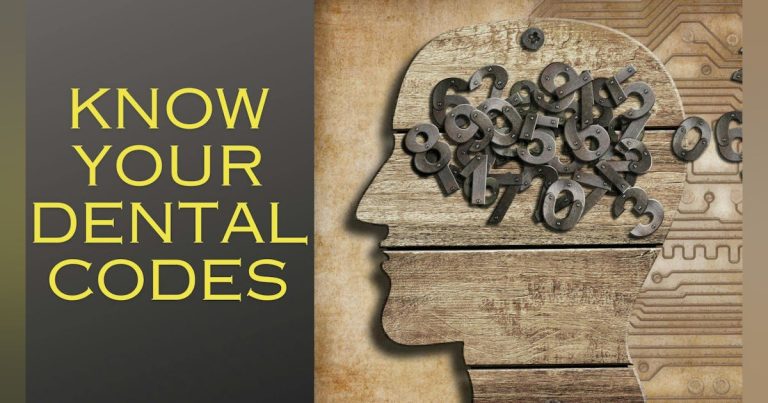Most dentists and dental hygienists are unaware that procedure code D4921, gingival irrigation – per quadrant, was modified for CDT 2023. Since its creation and inclusion in CDT 2014, the nomenclature (title) and descriptor have not changed. So why switch now?
For a little history, we spoke with Patti DiGangi, BSDH, RDH, (Founder and Director Emeritus of the DentalCodeology Consortium of DentalCodeology). Patti attended the March 2013 ADA Code Maintenance Committee meeting when this procedure code was submitted by a dental service organization (DSO). Their representative presented data collected from their practices to the DSO that showed an overwhelming number of gingival irrigation procedures performed after scaling and root planing.
These were submitted as D4999 (unspecified periodontal procedure, with reference) as there was no separate procedure code. They suggested that having a procedure that was not coupled with periodontal treatment would be beneficial for documentation and measurement. Their submission went through and the process code was generated.
You may also be interested
The old question: CDT dental code D4910 vs code D1110
Palliative care: When and how to use CDT code D9110
D4921: Gingival irrigation – by quadrant
Descriptor: Irrigation of gum pockets with medicinal agent. Not to be used to refer to the use of mouthwashes or non-invasive chemical cleaning.
At the March 2022 Code Maintenance Committee meeting, an amendment was proposed by the ADA Council on Dental Benefits that provided more clarification by including the term “mouthwashes” which was not clearly defined. This new language clearly states that the product being used must be a prescription drug agent and not an over-the-counter (OTC) agent.
D4921: Gingival irrigation with medicated agent – per quadrant
Descriptor: Irrigation of gingival pockets with a prescription medicinal agent. It should not be used to report the use of OTC mouthwashes or non-invasive chemical cleaning.
Further clarification, as provided in Dental Coding with Confidence for CDT 2024, it says that non-invasive dry cleaning or drugs or medicines dispensed in the office for home use should not be reported under D4921. This procedure should administer a prescription medicinal agent such as chlorhexidine/Peridex into instrumented pockets.1
The scientific literature does not appear to support subgingival irrigation as an effective evidence-based procedure. However, many clinicians still provide this post-SRP for various reasons, but often based on their personal experiences. A randomized controlled trial of 0.9% sodium chloride, chlorhexidine diglyconate, and povidone iodide was conducted to determine whether changes in detection depths occurred. Supplemental irrigation was found not to be necessary.2
What is the point? If a hygienist is to provide gingival irrigation to patients, D4921 is the appropriate CDT procedure code. Understand that with the modified descriptor, a prescription drug agent must be used.
bibliographical references
1. Blair C, Grobmyer G, DiMarino J. Dental Coding with Confidence (CDT 2024 edition). eAssist Publishing; 2023.
2. Krück C, Eick S, Knöfler GU, Purschwitz RE, Jentsch HFR. Clinical and microbiological outcomes 12 months after scaling and root planing with different irrigating solutions in patients with moderate chronic periodontitis: a pilot randomized trial. J Periodonton. 2012? 83 (3): 312-320. doi:10.1902/jop.2011.110044
Kathy S. Forbes, BS, RDH, has been a dental hygienist, educator, speaker, author, consultant, seminarian and study club leader for over 40 years. She is licensed with the ADA for Current Dental Terminology, which allows her to provide the most up-to-date understanding of current procedure codes. Kathy currently serves as director for the Dental Codeology Consortium, reviewing and developing procedure codes related to dental hygiene practice that are presented to the American Dental Association’s Code Maintenance Committee in March of each year.
Connie Simmons, MA, BSDH, RDH, she earned her BSDH from The Ohio State University and her MA in aging studies from Wichita State University. He has worked in clinical hygiene for almost 35 years and has other roles in clinical education, sales, speaking and writing. Her knowledge of dental insurance and coding grew while working with an insurance carrier and is now a member of the Dental Coding Consortium and an associate productivity coach with Inspired Hygiene. He is also an expert in the clinical use of silver diamine fluoride. Reach her at [email protected].

